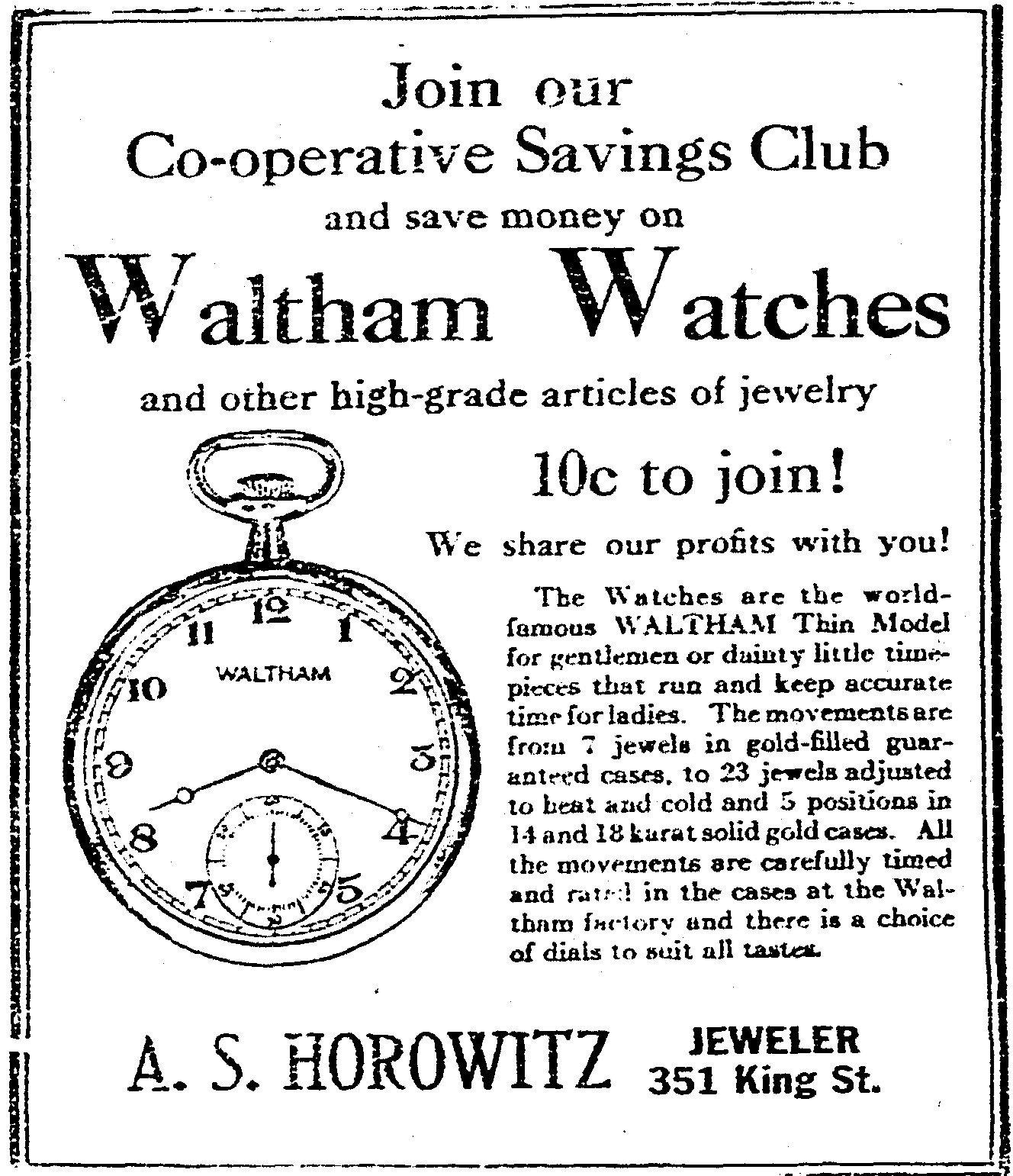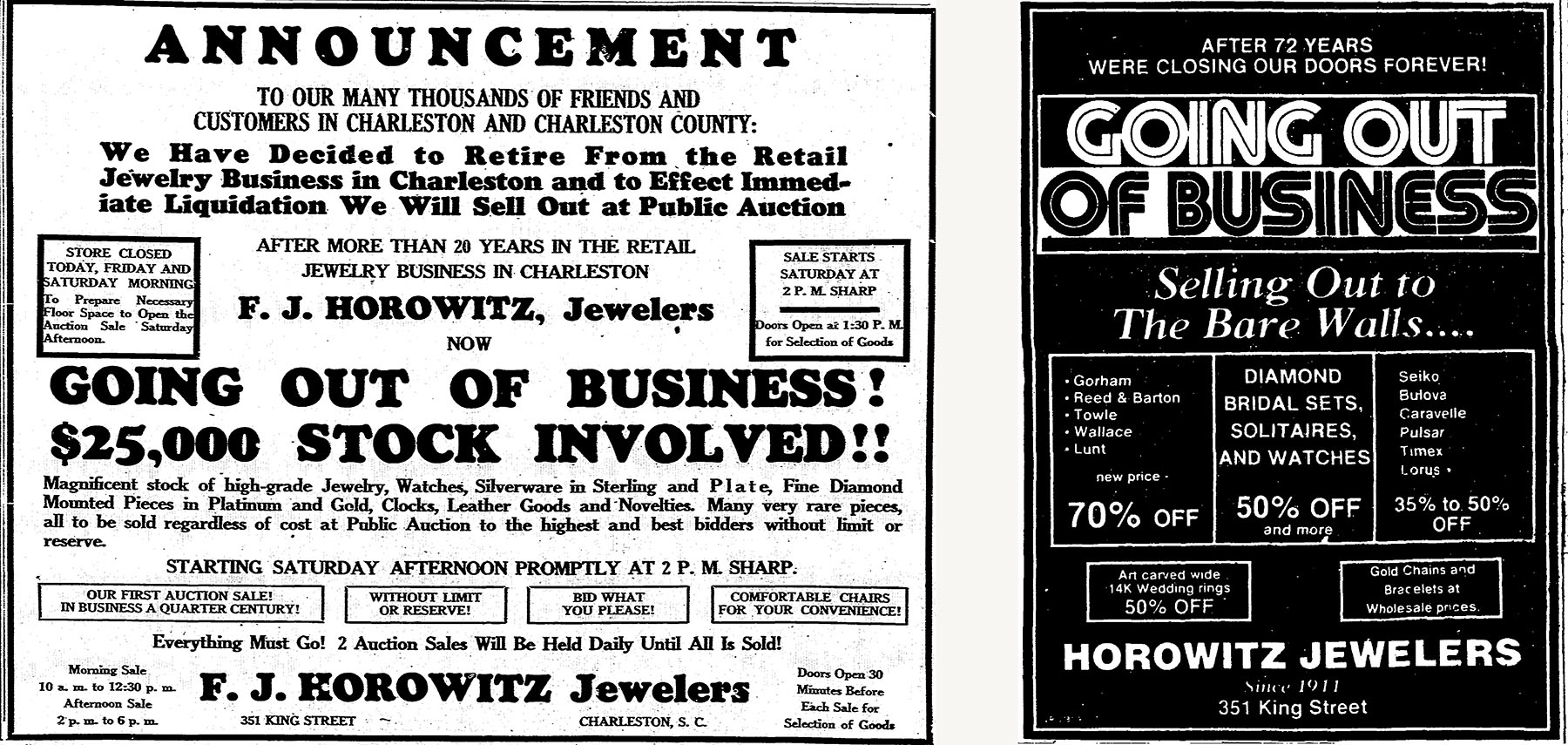
Horowitz Jewelers
Merchant
1911-1984
351 King Street
Charleston, SC 29401
FAMILIES: Horowitz
In 1911, Abraham Sol (d. c.1923) and his wife Fannie Jacobson Horowitz (1889-1985) established A. S. Horowitz at 351 King Street. According to their son Meyer (1909-1992), Abraham had previously been affiliated with R. H. Harris Jewelers in Portsmouth, Viriginia before moving to South Carolina and repairing time keeping devices at the Charleston racetrack. To supplement his income, he also worked as an equipment inspector for the Southeastern Railroad line.
After Abraham’s death around 1923, Fannie continued operating the store and changed the name to F. J. Horowitz to reflect her initials. In 1930, she advertised a going out of business sale but ultimately remained in operation, possibly at the urging of her son. Two years later, Meyer joined his mother in business after receiving professional training as a watchmaker, and in 1934, Fannie married Max Barney (1884-1952), the proprietor of Barney’s Men and Boys’ Clothiers in Portsmouth, Virginia.
After his mother’s marriage, Meyer continued to operate the jewelry store under the name Horowitz Jewelers. In 1946, he remodeled, adding an elevator to the second story and expanding his offerings to include a luggage and gift department. In an interview celebrating the store’s fiftieth anniversary, Meyer noted the many other changes he and his family made over the years, saying, “It used to be pocket watches instead of wrist watches and wedding rings were sold by the pennyweight rather than the individual piece.”1 Nonetheless, he continued to advertise Tiffany jewelry and silver serving sets for years to come. Meyer closed the store in 1984, a year before his mother’s death.
1 Charles W. Waring, Jr., “Jewelers Use Time to Good Advantage,” Charleston Evening Post, May 5, 1971, 20.
Main Image: Advertisement for A. S. Horowitz. Reprinted from The Charleston Evening Post, July 7, 1916.

Above Image: Left: Going out of business advertisement for F. J. Horowitz. Reprinted from The Charleston Evening Post, May 29, 1930. Right: Going out of business advertisement for Horowitz Jewelers. Reprinted from The Charleston Evening Post, December 23, 1983.